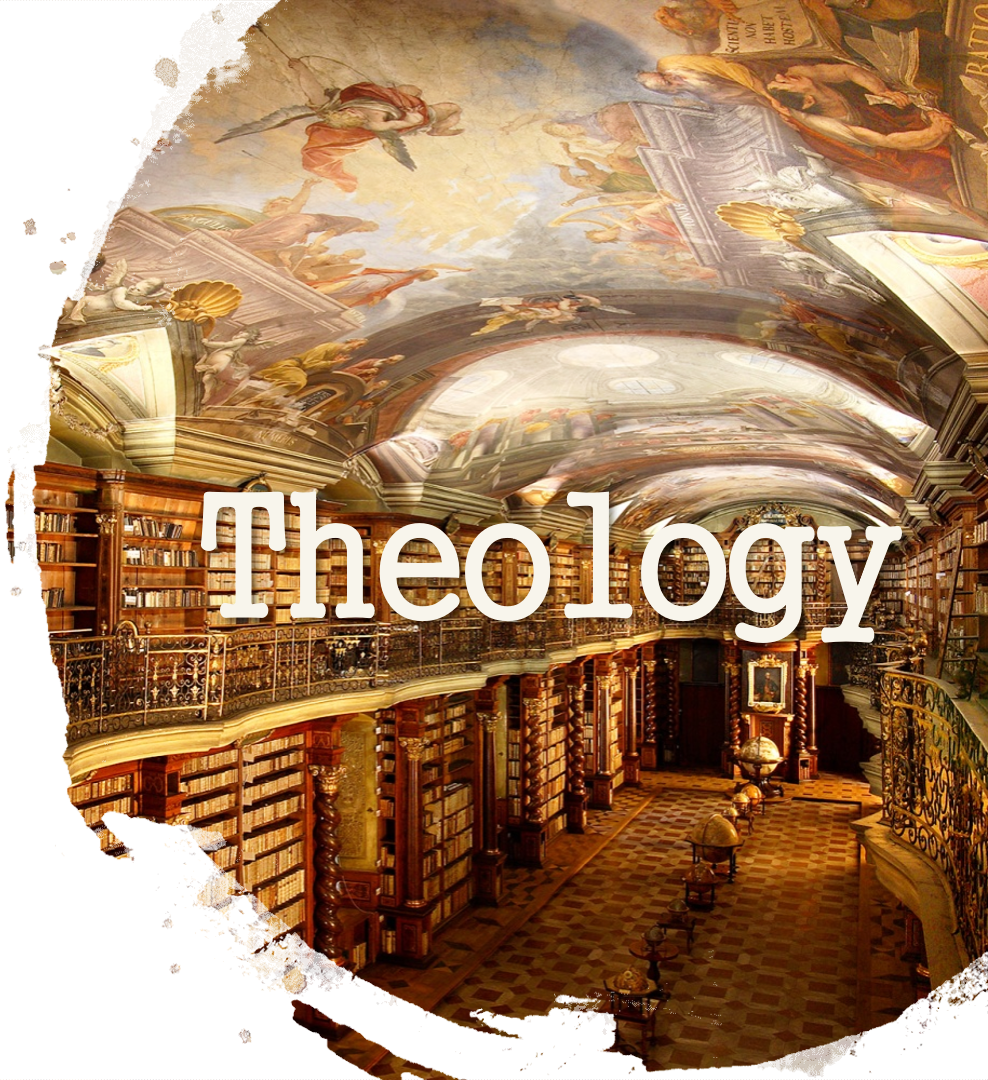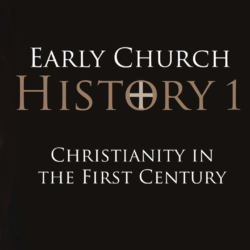We are now in our second-to-last episode in this 24-part theology class, covering the major biblical doctrines as well as various counterarguments. Today we will focus our time on the New Covenant. We’ll make our way through biblical history in order to understand the grand sweep of the bible, paying special attention to the old and new covenants. Of special note for this lecture is what happened when Gentiles started entering Jewish Christianity. We’ll briefly touch upon the first Jerusalem council, Judaizers, and Paul’s capitulation to Jame’s request. Lastly, we’ll see how Paul’s epistles as well as Hebrews make it clear that neither Jewish nor Gentile Christians need to keep the law in order to be saved.
—— Notes ——
New Covenant Basics
- testamentum: covenant, testament, will
- your bible has one main division between Malachi and Matthew
- Old Testament relates to the old covenant and NT to the new that came through Christ
- Jer 31.31-34 is the origin for all talk about the new covenant
- Jesus’ ministry
- new wine into new wine skins
- antitheses in Sermon on the Mount
- Last supper is when Jesus talks about his death as ratifying the new covenant in his blood
- nothing happens until the Gentiles start to come in
Historical Progression
Gentiles begin entering the church
- Samaritans?
- Ethiopian treasurer (he’s the first!)
- Cornelius, the Italian soldier
- Peter confronted for entering the house of “uncircumcised men” and eating with them (Acts 11.3)
- Peter defends his actions by telling them God accepted them so how could he stand in the way?
- speaking in tongues => God granted them spirit => God accepts them => Peter baptized them, accepting them into the family (Acts 11.15-18)
- The Antioch Church (lots of Gentiles enter)
- some Christians preached in Antioch to Greeks (Acts 11.19-21)
- The Jerusalem leadership sent Barnabas (Acts 11.22)
- Barnabas “saw the grace of God” and “he was glad” and lived there (Acts 11.23-24)
- Barnabas went to get Paul and ministered together in Antioch for a year (Acts 11.25-26)
- Antioch was B&P’s home base before going on missionary trips
Paul’s Influence
- Cyprus: proconsul Sergius Paulus believed (Acts 13.6-12)
- Pisidian Antioch: B&P turn to Gentiles (Acts 13.45-47)
- other cities: Iconium, Lystra, Derbe, then reverse order and go back to Antioch
- Controversy Breaks Out
- read Acts 14.27-15.5
- Paul confronts Peter: “If you, being a Jew, live like the Gentiles and not like the Jews, how is it that you compel the Gentiles to live like Jews” (Gal 2.14)
Jerusalem Council
- first council meets: council called to deal with controversy over Gentiles coming in
- Peter talks about Cornelius
- Barnabas & Paul tell about what God has done among the Gentiles
- James speaks
- they pen an official letter (Acts 15.23-29)
- double standard
- allows for table fellowship
Some “Judaizers” teach Gentiles need to keep the Law, especially in Galatian churches Paul started
- Paul writes to congregations, strongly arguing against Law-keeping
- Gal 2.19-21 righteousness does not come through the law
- Gal 3.10-29 no one is justified by the law; Christ redeemed us from the law’s curse for disobedience by becoming a curse; Abrahamic promises before law; God gave law to deal with transgressions until the offspring of Ab. came; law was guardian until Christ came; now that faith has come we are no longer under a guardian
- Gal 4.21-31 law associated w/ Hagar & Mt. Sinai vs. Isaac the child of promise
- Gal 5.1-6 if you accept circumcision, Christ will be of no advantage; you are severed from Christ if you would be justified by the law; in Christ neither circumcision nor uncircumcision matters
- Gal 5.13-25 walk by the spirit rather than the flesh; whole law is fulfilled in “love your neighbor as yourself”
- Gal 6.15-16 circumcision doesn’t count; peace upon Israel of God
More Pauline Texts that Bear on this Subject
- 1 Cor 9.20-21 Paul did not consider himself as actually being under the law
- Rom 6.14-15 you are not under the law but under grace
- Rom 7.1-7 as a widow is freed from law of marriage so is the Christian freed from the old law
- booster rocket analogy
- Paul no longer believed anyone needed to still keep the law
- also see Rom 2.25-29; 3.21-31; 4.13-16; 8.1-4, 13.8-10; 2 Cor 3.1-18
Paul returns to Jerusalem to bring collection for poor from Gentile majority churches
- He meets up w/ James and others and tells about his missionary journeys and they rejoice w/ him
- (Acts 21.20-28) James tells Paul to participate in Jewish ritual to prove he doesn’t teach that Jews need not keep the law and that he keeps it himself
- thus, James thinks Jews still need to keep the old law
Paul arrested and writes “Prison Epistles”
- Ephesians 2.11-19 at one time alienated from Israel, strangers from promises, without hope or God…but now brought near by abolishing the law that separated us from God’s people
- Ephesians 3.4-6 the mystery—that Gentiles would be fellow heirs—was not known before
- Colossians 2.11-17 we were circumcised through Christ; died w/ Christ; God made alive together w/ him, forgiving our trespasses and cancelling our debts; no one can pass judgment on you about food/drink, festivals, new moons, Sabbaths
Letter to the Hebrews
- Someone associated w/ Paul writes Hebrews, explaining why Law is now obsolete for Jews
- Hebrews convinces Jewish Christ-followers not to return to Judaism, but instead to hold fast to Christ since
- he is a better mediator of the covenant than the angels (Heb 1)
- he offers better salvation (Heb 2)
- he is better than Moses as a son is better than a faithful servant (Heb 3)
- his priesthood is better than Aaron’s b/c it’s after Melchizedek’s order (Heb 7)
- his covenant is better than the old covenant b/c it has better promises (Heb 8)
- his heavenly priestly service is better than priest’s earthly service (Heb 9)
- his sacrifice is better than animal sacrifices b/c it was once for all and actually takes away sin (Heb 10)
- Mt. Zion covenant is better than the Mt. Sinai covenant b/c it is unshakeable (Heb 12)
- Hebrews 8.4-13 God found fault w/ first covenant and promised new covenant (Jer 31 quoted)
- Heb 8.13 => he makes the first covenant obsolete by speaking of a new one!
- Heb 10.8-22 he does away w/ the 1st to establish the 2nd; quote of Jer 31 as fulfilled; no longer need a sacrifice for sins
- also see Heb 7.11-12, 21-22; 9.11-15; 12.18-29
—— Links ——
- For more on this check out these episodes
- For the textbooks, check out the New Bible Dictionary and Greg Deuble’s They Never Told Me This in Church.
- Also, listen to an interview with Deuble here.
- See other episodes in this Theology Class
- Find more Restitutio classes here
- More information about Converge 2019
- Intro music: Jazzy Frenchy by bensound.com. Licensed under Creative Commons: By Attribution 3.0 License








Dear Sean, hopefully, I can receive the same words of kindness that you gave Chuck at the end of this episode, for I too travailed listening to this knowing full well that I would disagree.
Earlier on in the lecture, you were juxtaposing the Old and New covenants, and you mentioned that offering sacrifices (at the temple) is not part of the New covenant. Please indulge me.
Jeremiah 33:14-18 is a New covenant text, right? It’s got all the good stuff that makes Churchgoers shout Amen! It starts, [‘Behold, days are coming,’ declares the LORD, ‘when I will fulfill the good word which I have spoken concerning the house of Israel and the house of Judah.] Surely this points back to 31:31. The text continues, [‘In those days and at that time I will cause a righteous Branch of David to spring forth, and He shall execute justice and righteousness on the earth.] The righteous branch should be understood as Messiah, correct? Moving on…[“For thus says the LORD, ‘David shall never lack a man to sit on the throne of the house of Israel;] This is the part where the Amens are shouted. This is full-on New covenant terminology, David never lacking a man to sit on the throne. But wait, what’s this in the subsequent verse? [and the Levitical priests shall never lack a man before Me to offer burnt offerings, to burn grain offerings and to prepare sacrifices continually.’”’] Can we have David never lacking a man to sit on the throne of the house of Israel and a Levitical priesthood to offer sacrifices too? I think yes! See also the similar text in Malachi 3:1-4.
Could you comment on this Jeremiah text Sean? Do you think it’s New Covenant terminology? Why or why not?
Thanks,
Brian
Hello, i have to respectfully disagree with part of what is been said here. Yes i am in total agreement that we are not saved by the Torah but by faith in the blood of Jesus. The thing is that people like the Messianic Jews or Hebrew Roots or even couple of non denominational Christians that obey the Torah know this. People often say we are in a New Covenant but don’t even know what are the terms of the New Covenant and The Torah or Law is part of The New Covenant, so we cannot be part of the Covenant if we don’t have the Law of Yah in our minds and our hearts. Another point people don’t see is that the New Covenant is for the House of Israel and Judah, according to Jer. 31:31 and Heb. 8:8, so unless we as people from the nations (gentiles) don’t accept the terms of the Covenant we cannot be grafted into Israel to participate of the Covenant. See the Covenant is a Pact that God made with Israel and the Law are the terms that they need to follow to keep that Covenant in function but the people of Israel didn’t follow the rules. That is why God had to make a New one because the people broke it, not because it was bad or imperfect, the people were bad and imperfect. And since the beginning there were people from other nations that accepted the God of Israel and followed the Torah even at Sinai when Moses took the people out of Egypt it says that was a mix multitude and that mix multitud heard the voice of God at Sinai, see the Gentiles were always part of Israel as long as they follow the Torah like a Native and be participant of the Covenant and God said it very clearly that, One Law will be for the Native and for the Alien. The Law is what let us know what is Sin in God’s eyes, so transgressing of the Law equals Sin just like 1 John 3:4 says. So if we believe that sin still exists we have to accept that the Law is still valid, sin without the Law cannot exist because the actual biblical meaning of sin is lawlessness, wickedness, iniquity all this are synonyms of disobeying the Law (sinning). Yes there are a lot of Laws that we cannot follow because there is no Temple or we do live in a Theocracy and so on, but that doesn’t mean that the Law is been abolished. Just like our Messiah said in Mathew 5:17-19.
Acts 15 has been misunderstood drastically by the people that think we don’t have to Obey the Law, they were criticizing the people that were saying that they needed to be circumcised in order to be saved, we have to understand that there were people in those times that followed the oral law what we know today as Talmud and that is the yoke they talk about which are traditions that add to the Law making it imposible almost to follow, so they gave the gentiles 4 things to follow as a start to be part of the congregation but then what most people miss is that in 15:21 tells us pretty much that the rest of the Torah or Law they are going to learn it on every Sabbath. So is very simple we are saved by faith but we are sanctified ( set apart ) by obeying the Law, we set ourselves apart from the world by obeying God because we love Him and because we are saved. It’s pretty easy, if we want to be part of God’s people (Israel) and participate of His Covenant we have to accept His terms.
How can one say that Jesus was keeping the law of MOSES when he expressly contradicted it on some points? i.e., food laws, Mar 7:15-19; the Sabbath, Mat 12:1-7; John 5:17-19; marriage/divorce, Mat 19, etc.
It is the error of evangelicalism which denies the New Covenant to the historical Jesus!
Paul was a minister of the new Covenant as we know, so are we: 2Cor 3:6!
Sir Buzzard,
Jesus came not to abolish, but fulfill the Law [Matt 5:17-19]. Your position is in stark contrast. Jesus added to that: the one who obeys even the littlest command *and teaches others to do so* wi’ll be greatest in the kingdom! I want that. Do you want that? What do you make of his words?
Also, in Mark 7, Jesus rails the Pharisees for removing God’s command in favor of men’s tradition. Why would he use this as an opportunity to “declare all foods clean”? The Greek does not have “declare,” but if you look closely Jesus says the heart is not affected by eating with unwashed hands, because it is *purged* into the latrine. King James renders this best. But compare to Matthew’s parallel (ch15). No mention of unclean foods.
Sean, I love your Christological work, but I must disagree. What do you make of Matt 5:17-19? It seems pretty clear that I should take pleasure, looking forward to A great reward, in teaching others to obey even the littlest command of the Law. A quick word study on “lawless” or lawlessness” will itself provide a fair challenge to your position. Matt 7:21, “Depart from me, you workers of lawlessness.” How should we consider his words?
Romans 2, Paul says the hearer of law is not saved, but the one who does the Law. I must agree that we are saved by Jesus’ righteousness, not by our own, but “if you love me, you will obey my commandments.” And “for this is the love of God, keeping his commandments, for they are not burdensome.”
My perspective is that just as I am a citizen of the US, I am bound to its laws, so I am a citizen of the Kingdom of Heaven and I am bound by its laws. The Torah was a national constitution. YHWH was the king and the legislator, and the priesthood was the judicial system. The folly of the Pharisees was that they twisted it from a national law, made it purely religious, and then started adding to it! But even the Israelites that left Egypt were saved by faith in the blood of a lamb, baptised into the Sea, and called “redeemed” before they were given laws. So it is today. First be saved by faith, then be baptized, and then start showing up every Sabbath to hear how you can obey [Acts 15:21- funny you stopped reading right before that verse.] That is the “obedience of faith” [Rom 1:4].
In Love, in Christ, and in thankfulness to all your work (keep it up!)
-Luke from San Diego
I loved this presentation. I’m so glad I discovered this. Why are there so many Judaizers in the Resitutio group?
Good question, John !
I love Paul’s Epistle to the Galatians !